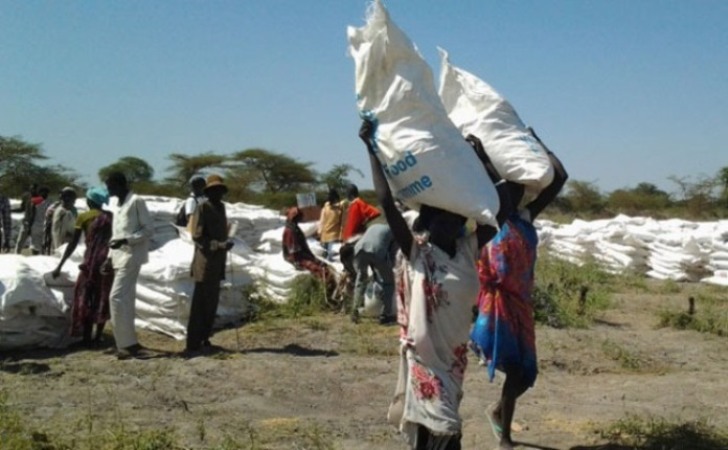South Sudan’s warring factions urged to end violence

May 25, 2017 (JUBA) – All parties involved in the conflict in South Sudan must cease violence and work together to ensure that food and other lifesaving support can reach people to end famine and severe hunger, the heads of the Food and Agriculture Organization of the United Nations (FAO) and of the United Nations World Food Programme (WFP) said.
The appeal was made by FAO’s José Graziano da Silva and WFP’s David Beasley during a visit to South Sudan’s former Unity state, one of the areas in young nation worst hit by the current hunger crisis.
About 5.5 million people in South Sudan, or nearly half of the South Sudanese population, face severe hunger, not knowing where their next meal is coming from ahead of the lean season, the U.N said.
Of these, it added, a million people remain on the brink of famine.
“This unprecedented situation reflects the impact of ongoing strife, obstacles to delivering humanitarian assistance and declining agricultural production,” the world body said in a statement.
During their visit to South Sudan, the two U.N officials stressed that an immediate, massive response was critical in combining emergency food assistance and support for agriculture, livestock and fisheries.
“Despite the appalling conditions it is not too late to save more people from dying. We can still avoid a worsening of the disaster, but the fighting has to stop now. There can be no progress without peace. People must be given immediate access to food, and farmers need to be allowed to work on their fields and tend to their livestock,” said FAO’s da Silva.
The two senior U.N officials, during their tour of Unity state, visited people in several places who are being supported by the two agencies as they cope with the hunger crisis. They, for instance, visited Kok Island where many people sought shelter from fighting.
They reportedly also witnessed WFP planes airdropping life-saving food for tens of thousands of people in Ganyiel, where regular distributions of humanitarian aid have kept famine at bay.
“Food, treatment for malnourished kids, kits that help people fish and grow vegetables – these are the difference between life and death for people we met in Unity state,” said WFP’s Beasley.
“But we can’t keep scaling up forever. The fighting has to end to make the kind of investments that give the children of South Sudan any hope for the future they deserve,” he added.
Meanwhile, FAO and WFP are reportedly facing a funding gap of around $182 million for the next six months, and are struggling to raise funds to meet skyrocketing needs in several crises around the world.
“Donors have supported South Sudan over many years,” said Beasley.
“WFP will continue to stand by the people of South Sudan in their time of need. But times are tight, with so many crises around the world demanding attention and support,” he added while urging South Sudanese leaders to facilitate efforts of humanitarian workers.
South Sudan has now become the world’s fastest growing refugee crisis with more than 1.8 million refugees, including one million children, having sought safety in Uganda, Sudan, Ethiopia, Kenya, the Democratic Republic of the Congo and the Central African Republic, according to recent figures released by the world body.
Last week, the U.N refugees and food relief agencies urged donors to step up support for people fleeing crisis-hit South Sudan as the $1.4 billion response plan reportedly remains 86 percent unfunded.
(ST)
